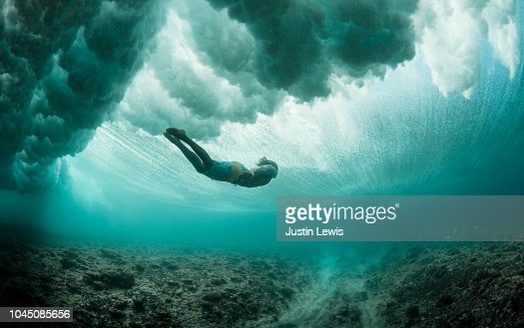What do students at FHC know about free diving?

More stories from Riley Koehler

There are tons of options for sports. Throughout the years, some of them have stayed and have been developed, and some have faded away which leaves room for new sports to emerge. One sport that is unheard of is freediving. Freediving is “the sport or activity of diving underwater without the use of breathing apparatus, especially in deep water.” The main idea of this sport is to compete with other divers to see how long they can hold their breath underwater and be able to see the wonders of the sea without the use of oxygen tanks.
At FHC, we do not have the opportunity to have this sport included in those that are offered, but most students have not even heard about it in the first place so they would not know how to begin to explore it. Though freediving might be more common in other countries closer to the ocean, it is still a sport that is around the world, though not as prominent as others. Senior Nick Gootjes, has been to many places throughout the world such as Iceland, India, Mexico, Costa Rica, United Arab Emirates, and Malaysia.
“Freediving is a lot more common on island nations. The locals learn by doing different breath exercises to expand their lung capacity in order to compete. Unlike other forms of diving, you do not need any form of scuba certification for freediving because there are no oxygen tanks required. It is a really difficult sport to be good at, but if it was an option around us, it would be something that would be interesting to learn more about,” Nick said enthusiastically.
As one might assume, spending as much time underwater as these freedivers do, it could have a significant impact on your body. Though it could be assumed that it would have a negative impact because of the lack of oxygen and increase in carbon dioxide, you would be wrong. Like any other physical activity, freediving will increase the strength of your body, help develop muscles and increase endurance and vitality. Freediving activities also benefit your joints, which experience less pressure underwater, and help strengthen your lungs through exercises to increase their oxygen capacity. FHC senior Lauren Wolffis, was on a swim team for a while and realizes breath control is a tough element to develop and an even harder element to increase.
“Breathing in deep rather than taking short, shallow breaths is important along with slowly releasing your air while you are swimming. If you do not pace yourself and save your oxygen so that you can slowly release it throughout your swim in order to extend the amount of time you can be underwater, diving would be really difficult,” Lauren said.
Scuba diving is one of the more common forms of diving that is recognized and easier to learn because it is not a skill you need to develop like freediving. Mr. Kyle Carhart is a teacher at FHC who has explored the world of diving. Mr. Carhart understands that it would not be an easy sport to learn or be good at, but would be interested in learning more about it if he went to an island country.
“For sport, I would love to try freediving. I was supposed to go when I was on vacation to try both freediving and spearfishing, but the weather was too bad on the day we were supposed to go. They did not have any openings on the other days we were on vacation, but it’s something I would look into,” Carhart said.
Freediving is a challenging sport, and not many know about it, but quite a few of the students and teachers at FHC seem interested in learning more about this unknown form of diving.

Riley Koehler is a senior at FHC and is starting her second year as a sports reporter. Her favorite class is FHC Sports Report. She loves to write about...


